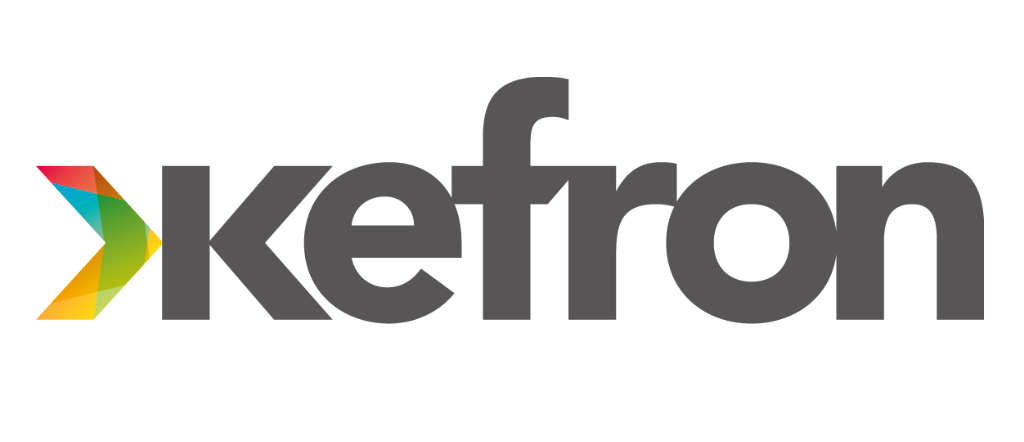Day 2: THURSDAY 11 JULY
Day 1
Day 2
Please note that the programme sessions, speakers and timings are subject to change.
Registration and refreshments
08:15 - 08:50
Fringe
Registration and refreshments
08:15 - 08:50
Refreshments and networking in the exhibition hall
Close
President's welcome and Chair’s opening remarks
08:50 - 09:00
Speakers and more info
President's welcome and Chair’s opening remarks
08:50 - 09:00
Speakers:
Carol Culley
Incoming CIPFA President
Close
Opening keynote panel discussion: Balancing the risks and rewards of AI in public services
09:00 - 10:00
Speakers and more info
Opening keynote panel discussion: Balancing the risks and rewards of AI in public services
09:00 - 10:00
Is AI a silver bullet to public sector productivity or another sticking plaster that ignores the underlying challenges facing our public sector finances? Can data science, interrogation and AI transform our understanding of our communities, improve our processes and deliver better outcomes to the public? Or are we at risk of losing our most valuable resource – our people – to care for our communities in their time of greatest need? We will embrace new technologies in a way that augments rather than diminishes the role of the professional but given Government’s historic failures when it comes to digital projects, how worried should we be – and who are the early adopters who show us the way to success?
Close
Keynote address: How do we save the public sector?
10:00 - 10:30
Speakers and more info
Keynote address: How do we save the public sector?
10:00 - 10:30
In the UK we are at the end of the political cycle. There are little or no plans to address low growth and high levels of inequality within the economy. After decades of austerity public services and their funding models are at risk of obsolescence and must be replaced with longer term solutions for our most essential services. This review of the state of our public sector – and public finances – looks at the range of challenges for the UK, and how we can tackle them in the light of a slowing economy, a cost of living crisis and a Government that is unable, or unwilling, to tackle the long-term problems.
The expertise and resilience of our public sector workers is not enough – they need a long term plan. The public needs to trust in the services provided by the public sector and good decision making is integral to this. Are productivity plans the answer or another distraction from systemic underinvestment and ongoing Governments’ refusal to act on fundamental reform needs? Why are we tinkering at the edges and ignoring fundamental reform?
Close
In conversation with Owen Mapley, CIPFA CEO
10:30 - 11:00
Speakers and more info
In conversation with Owen Mapley, CIPFA CEO
10:30 - 11:00
CIPFA’s new CEO sets out the key priorities for the organisation and what’s at the top of his inbox as he settles into his new role.
Close
Break
11:00 - 11:30
Fringe
Break
11:00 - 11:30
Refreshments and networking in the exhibition hall
Close
AI, Outsourcing and Career Advancement – Navigating the future of public finance
11:30 - 12:30
A Profession for Today & Tomorrow
Speakers and more info
Beyond the Backlog: Longer term reform of local audit
11:30 - 12:30
Public Trust
Speakers and more info
Asset or Liability? The Future of Local Government Finance in the Face of Capital Constraints
11:30 - 12:30
Public Service Reform
Speakers and more info
Managing rising demand in adult and children’s social care publication launch
11:30 - 12:30
Place and Planet
Speakers and more info
AI, Outsourcing and Career Advancement – Navigating the future of public finance
11:30 - 12:30
Kefron and East Midlands Shared Service will explore whether these topics represent a problem or an opportunity for Accounts Payable Professionals in 2024.
- Automation and AI: We unravel the real impact of AI and automation within public sector finance. Are these technologies widely adopted for enhanced productivity, or do they remain a futuristic vision?
- Insourcing vs. Outsourcing: Insights into the dynamics of bringing processing functions in-house versus partnering with outsourcers. Experience shared by Leicester County Council and Nottingham City Council offers valuable perspectives.
- Productivity and Career Advancement: Strategies to maintain high productivity without overburdening staff, enhancing retention, and navigating career development amidst increasing automation.
Close
Beyond the Backlog: Longer term reform of local audit
11:30 - 12:30
This workshop will explore what the longer-term reforms of local audit could look like, and the opportunities and risks it provides for practitioners, local government, their stakeholders and the communities they serve.
Close
Asset or Liability? The Future of Local Government Finance in the Face of Capital Constraints
11:30 - 12:30
In an era where local councils face unprecedented financial pressures, the quest for efficient resource optimisation has become paramount.
The government's recent consultation on capital flexibilities signals a potential shift towards encouraging the sale of capital assets as a means to balance budgets. This approach, often likened to selling the 'family silver,' raises critical questions about the sustainability and implications of such strategies for local government.
The panel session will delve into the complexities of this issue, examining the balance between immediate financial relief and long-term fiscal health. It will explore alternative strategies for resource optimisation and assess whether the sale of capital assets should be viewed as a pragmatic solution or a last resort.
By analysing case studies and expert insights, the session aims to provide a nuanced perspective on the future of local government finance in an increasingly constrained economic landscape.
Close
Managing rising demand in adult and children’s social care publication launch
11:30 - 12:30
Demand for adult and children’s social care services is rising. Local authorities are spending more and more of their budgets on social care services. This panel launches CIPFA’s latest social care publication, which focuses on how local authorities across England are managing rising social care demand. Learn lessons in good practice and about the importance of the finance profession in managing social care demand.
Close
Lunch Break
12:30 - 13:30
Fringe
Lunch Break
12:30 - 13:30
Lunch and networking in the exhibition hall
Close
A profession for today and tomorrow: What skills will PF professionals need in 2030 and beyond?
13:30 - 14:30
A Profession for Today & Tomorrow
Speakers and more info
How continuous improvement strengthens public services delivery?
13:30 - 14:30
Public Trust
Speakers and more info
Leveraging Technology in Shared Services for Improved Business Outcomes
13:30 - 14:30
Public Service Reform
Speakers and more info
Driving finance resilience through technology: automation, integration and embedded finance
13:30 - 14:30
Place and Planet
Speakers and more info
A profession for today and tomorrow: What skills will PF professionals need in 2030 and beyond?
13:30 - 14:30
All professions need to re-invent themselves to remain relevant to the societies they serve. The world will need different skills from its public finance professionals and the profession will need to embrace change. What skills will PF professionals need in 2030 and beyond? How do we educate and accredit those new capabilities? And how do we embrace new technologies in a way that augments rather than diminishes the role of the professional.
Close
How continuous improvement strengthens public services delivery?
13:30 - 14:30
Financial pressures bear down relentlessly on the sector and have only been intensified by the growth in demand for services. Despite this public sector organisations have shown themselves to be both pioneering and resilient. At its best, the sector can collaborate, partner and innovate to deliver improvements to the lives and livelihoods of citizens
Committing to continuous improvement is often the key and allows organisations to innovate how and what they do sometimes the change is big often it is smaller but the path is always towards improvement.
Good financial management is central to this effort and plays a vital role in developing organisational resilience and supporting innovation and collaboration. In this session we will hear from practitioners who have raised the bar from good to great, seen and taken advantages of new opportunities and responded to crisis with a refreshed and strengthened financial and strategic plan.
Close
Leveraging Technology in Shared Services for Improved Business Outcomes
13:30 - 14:30
Standardisation of processes can put fear into the most hardened finance leader, when you consider the work required for analysis, planning, design and testing, it can be a substantial task to manage change across systems, processes and people. Most digital transformation projects stumble through this hurdle, but in reality, you may not need to experience the pain to get the gain, especially as others have gone before you. In the case of Shared Services, standardisation is essential for success.
Hear from Unit4 and Audrey Clements from Hoople, about today’s changing landscape, how the different models of shared service deliver value to their communities. We discuss how technology is being leveraged to establish standardisation across finance and meet the specific needs of the public sector, the benefits of moving to SaaS, pitfalls, challenges, and value of standardised finance processes, such as the Chart of Accounts and Medium-Term Planning through automation.
Close
Driving finance resilience through technology: automation, integration and embedded finance
13:30 - 14:30
This session will discuss the role of technology, how it’s changed and how public sector organisations can leverage technology to drive financial resilience.
From basic automation and reconciliation to AI and embedded finance, technology is changing the landscape across organisations and businesses alike. Keeping pace with the latest tech, ensuring citizens across generations and communities are provided with the choice of technology and ways to pay that are most convenient, is more important than ever to ensure financial stability in an increasingly changing environment.
Panellists will share their insight across payments technology, the latest trends and how choosing the right tech can improve internal efficiencies, easing reconciliation, improving forecasting, and driving financial resilience.
Delegates will hear an example from a local authority who have implemented new technologies and its impact; as well as what to consider when reviewing or introducing new technology.
Close
Break
14:30 - 15:00
Fringe
Break
14:30 - 15:00
Refreshments and networking in the exhibition hall
Close
Closing keynote address: Restoring trust in our public institutions and Chair's closing remarks
15:00 - 16:00
Speakers and more info
Closing keynote address: Restoring trust in our public institutions and Chair's closing remarks
15:00 - 16:00
At a time when Government is seen as far less competent and ethical than business, how should our public institutions navigate
Close




